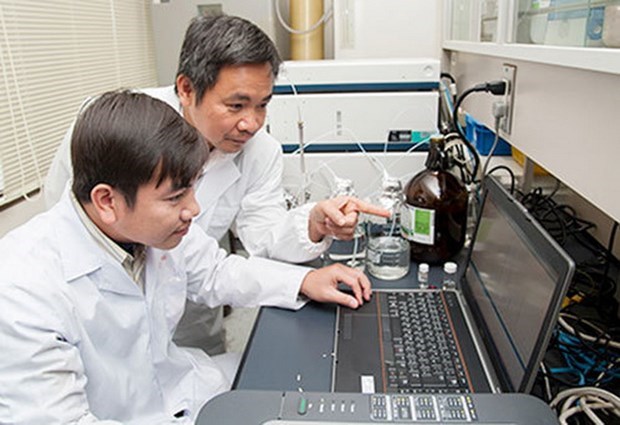 Society
Society


|
| Vietnamese scientist Prof. Dr. Trần Đăng Xuân (right) at the Laboratory of Plant Physiology and Biochemistry at Hiroshimas University. —VNA/VNS Photo |
TOKYO — Vietnamese scientist Prof. Dr. Trần Đăng Xuân and his colleagues at Hiroshima University in Japan have discovered anti-cancer agents in rice husks.
Their research, titled ‘Cytotoxic Mechanism of Momilactones A and B against Acute Promyelocytic Leukemia and Multiple Myeloma Cell Lines’, was published in Cancers magazine in October this year.
This is the first study clarifying the cytotoxic mechanism of Momilactones A (MA) and Momilactones B (MB) on acute promyelocytic leukemia (APL) HL-60 and multiple myeloma (MM) U266 cell lines.
These compounds may induce G2 phase arrest in the HL-60 cell cycle through the activation of p-38 and disruption of CDK1 and cyclin B1 complex.
These findings provide novel insights into the anticancer property of Momilactones, which can be a premise for future studies and the development of Momilactone-based anti-cancer medicines.
The Laboratory of Plant Physiology and Biochemistry at Hiroshimas University led by Xuân is one of the few laboratories in the world that can purify Momilactones from natural sources such as rice.
In a study in 2019, the group discovered and successfully extracted 600 mg of MA and MB from 30kg of rice husks. — VNS




